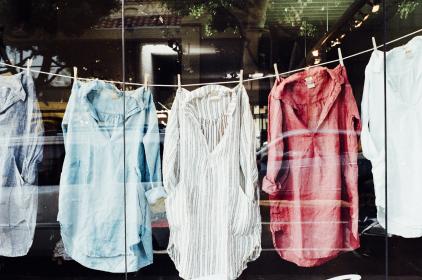
G7 Fashion Deal can only be meaningful if it aligns with UN Guiding Principles on Business and Human Rights
This weekend, a coalition of 32 large apparel companies launched a G7 Fashion deal for sustainably produced textiles, pledging to protect the environment.
Clean Clothes Campaign welcomes the intentions behind this pledge, but stresses that the time of non-committal promises is over and that the steps forward should be embedded in legally binding legislation and agreements as well as existing international frameworks.
For Clean Clothes Campaign it is clear that the past decades of voluntary certification, labelling, and brand level commitments have not brought genuine or lasting change to global garment supply chains.
“Despite many fine promises, both the ecological and human rights footprints of the fashion industry has increased dramatically over the last decades. Therefore, the implementation of environmental and social standards in the supply chain requires a coherent set of accountable and enforceable measures. This should happen within a legal framework for companies’ human rights and environmental due diligence,” says Ben Vanpeperstraete of Clean Clothes Campaign.
The United Nations (UN) Guiding Principles on Business and Human Rights, one of the most comprehensive set of rules that all companies world-wide should follow, advocate a so-called smart mix of measures. Instead of being an isolated or one-off initiative, the G7 Fashion Deal should contribute to the implementation of the UN Guiding Principles by setting up a framework of transparency, monitoring, and accountability of the sustainability of fashion.
The Fashion Deal must define clear and ambitious entry conditions for companies. This would mean that companies may only have access to the Deal if they can prove that they:
- Take ambitious and appropriate measures to avoid all sector risks in accordance with the Organisation for Economic Cooperation and Development (OECD) Guidelines for environmental and human rights due diligence in global textile supply chains. These include measures to implement the International Labour Organisation (ILO) core labour standards, preventive measures against gender-specific violence and measures that lead to wage increases aiming to reach living wages;
- Review and modify their business models, supply chain, and purchasing policies to ensure proper human rights and environmental due diligence in line with the UN Guiding Principles on Business and Human Rights and, at a minimum, ensure that prices paid to suppliers allow payment of living wages;
- Have established safe, independent and trustworthy complaint mechanisms;
- Be a leader in transparency and accountability by:
- Publicly disclosing factory level information about the supply chain, in line with the Transparency Pledge Coalition standard as an absolute minimum standard;
- Publish those in a machine-readable, downloadable format;
- Publicly disclose the audit reports of the certified production sites and/or product in to prove the progress toward the ambitions of the Deal.
The G7 Fashion deal can contribute greatly to the UN Guiding Principles if it develops its activity within the framework set by these rules and strives for an ambitious design to strengthens the transparency and accountability of the Guiding Principles.